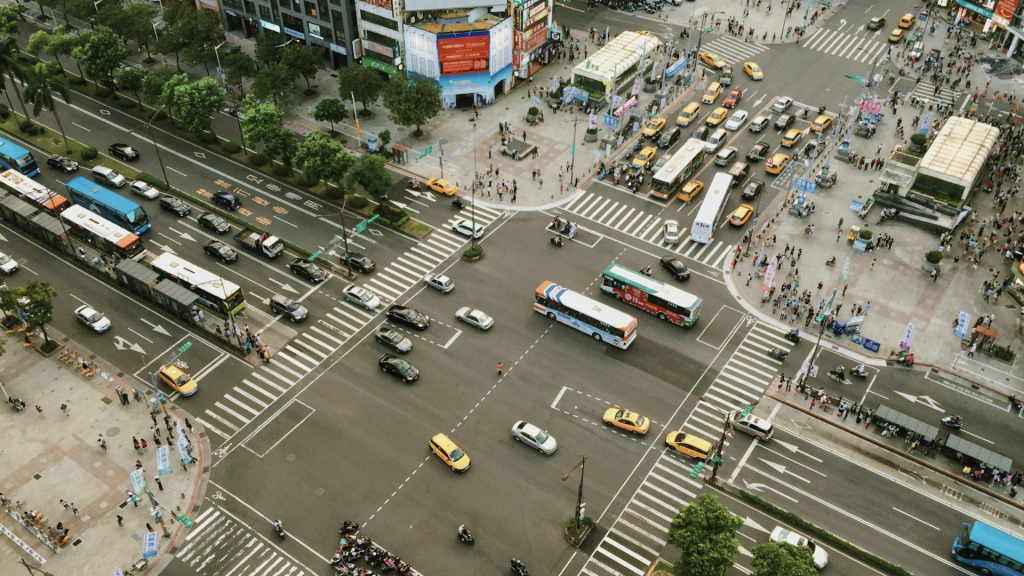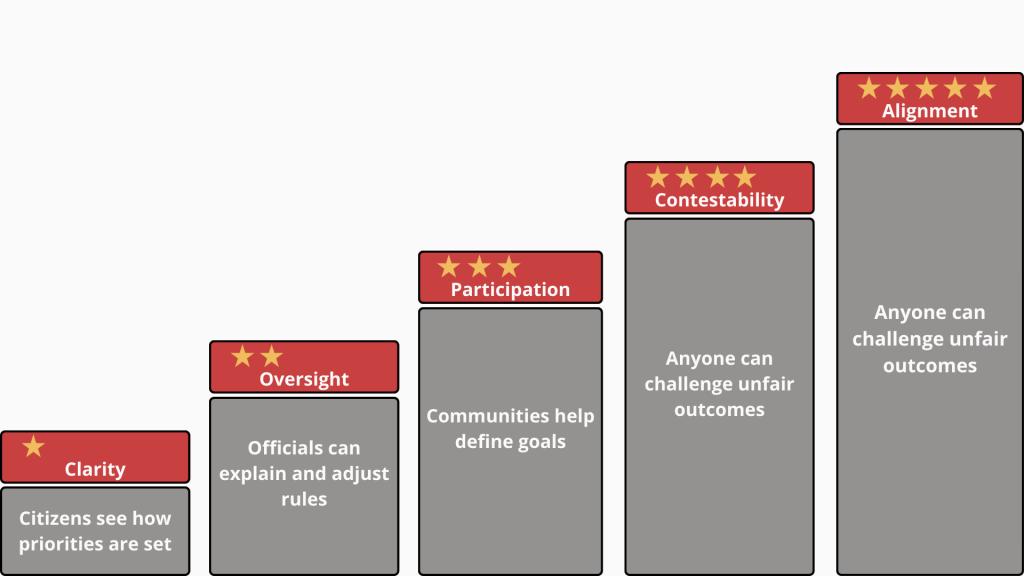
“Human beings introduce friction in the democratic system, and that is not a bug; it’s a feature. Friction equals reflection, compromise, safety. The most efficient government is necessarily dictatorial.”
-Carissa Véliz
Watch the Project Pitch (in Dutch)
About the Project
This project develops a public, scalable tool to help policymakers, designers, and citizens implement smart technology in a transparent, equitable, and verifiable manner.
The tool will take the form of a 5-star model. The first use case chosen is the democratically responsible deployment of intelligent traffic lights (in Dutch: intelligente verkeersregelinstallaties, or iVRI’s).
Why AI in Public Space Needs Democratic Control
From smart traffic lights to predictive algorithms in social services, AI systems increasingly make decisions in our public spaces. These decisions shape access, mobility, safety, and opportunity, yet they’re often treated as purely technical or operational matters.
But algorithms make choices. Who gets the green light first? Which route gets priority? What is flagged as “normal” or “risky”? Without public debate, such systems may silently shift power and values, often without oversight or accountability.
This project develops a five-star evaluation model for democratic control. Not just for iVRI systems, but for any AI infrastructure used in public governance. The model turns abstract principles into concrete questions: Who sets the rules? Which values count? Can people understand, challenge, or change the outcomes?
Our Five‑Star Model for Democratic Control

First Use Case: Smart Traffic Lights (iVRI’s)
Our first use case is intelligent traffic control systems (iVRI’s): smart traffic lights that use real-time data to prioritize certain road users. Through literature research, expert interviews, focus groups, and pilot projects, we investigate which values and decision points are crucial in iVRI design, and how they can be publicly legitimized.

These insights feed into the broader model, which can then be applied to other municipal AI applications, such as smart enforcement or data-driven mobility services. Thus although our initial focus is on smart traffic lights, the model applies to any use of AI in public infrastructure.
Upcoming Events
Here we will notify you of any events happening related to our project.
Publications
All findings, tools and guides will be published here for free reuse.
Meet the Team
Led by the University of Groningen and The Green Land, this initiative blends academic insight with on‑the‑ground expertise.

Assistant Professor
University of Groningen

Digital ethics advisor
The Green Land
Get Involved: Help Shape Democratic AI in Public Life
The city of Groningen is participating, and we are looking for others to join. Whether you work in policy, research, civic tech, or public advocacy. Together, we can make sure smart mobility strengthens democracy instead of sidelining it.
By testing this model in real-world situations, we aim to learn what works, what needs adjusting, and how to scale it to other domains. While we begin with mobility, the approach is intended to grow beyond it.
Let’s design systems that serve the public, not just manage it.
Project Funding
This project is funded by the SIDN Fonds under the Theme call ‘Responsible AI in Practice’. The project runs from 1/9/2025 to 31/8/2027. For more information, see de SIDN website.